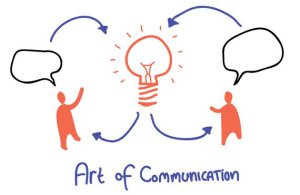How to Prepare for a Difficult Conversation

How to prepare for a difficult conversation with your partner
Communicating can be very difficult when you are preparing to have a difficult conversation with an individual or group of people who you know most likely will have mixed reactions and emotions regarding the subject. Most People find it easier to avoid communicating something that they think is going to be controversial or unpleasant, which results in halting the communication and letting the situation linger. It’s usually embedded in people to avoid confrontation conflict and stressful situations.
“Learning how to have difficult conversations at work or in personal relationship’s boosts one’s confidence, increases one’s self-awareness, and gives one the sense of being in control of one’s own life. What stops us from having that difficult conversation we should have?”
Fear is usually what stops a person from confronting a difficult situation. Fear can arise when facing a difficult conversation because you may be afraid that you will hurt someone’s feelings, fear losing people you love, or fear of incurring in those we love or want to impress, “we fear the consequences of engaging in a difficult conversation”.
Some tips on preparing for a difficult conversation:
- Don’t delay the conversation any longer and provide reasons for why it needs to happen: Delaying conversations just makes the situation more dramatic and can even lead to failing to ever resolve the conflict. Being honest and confronting the person/ group and giving them a reason to see why you would like to discuss the issue, this will optimistically lead to a respectful conversation between both parties.
- Stay connected when communicating and encourage Questions: Each of us communicates in different ways; staying open-minded when communicating with the person or group and encouraging questions by the other person, may help the flow of communication and help to get a better understanding of how the individual or group feels about the subject at hand. It will encourage them to share their perspective. Do not focus the whole conversation on yourself; you should be interested in the other person’s opinions too. It is healthy to express your feelings but this is about you conversing back and forth, not one way.
- Resist making fast assumptions; Think before speaking right away: Listen to the other person and assess the situation fairly. Many people have a hard time seeing things from the other person’s point of view. Before making assumptions about the situation, listen to the individual/group and then arrive at a conclusion because it could be that the situations that lead to the conversation was just a misunderstanding. Hopefully this will result in figuring out a solution to the situation/conversation or coming to a mutual agreement about what the future holds after the discussion.
- Don’t Rehearse: Be genuine; if you are not you should not expect a sincere response. If you want to confront a situation that is bothering you, explain exactly how you feel honestly without sounding like your reading off a projector screen. Correct communication is the key to opening up new ways of approaching tough topics.
If you are struggling with communication issues, problems confronting a difficult situation that may concern you or anxiety, feel free to contact our Bergen County, New Jersey or Manhattan offices of psychologists, psychiatrists, and psychotherapists for an evaluation.